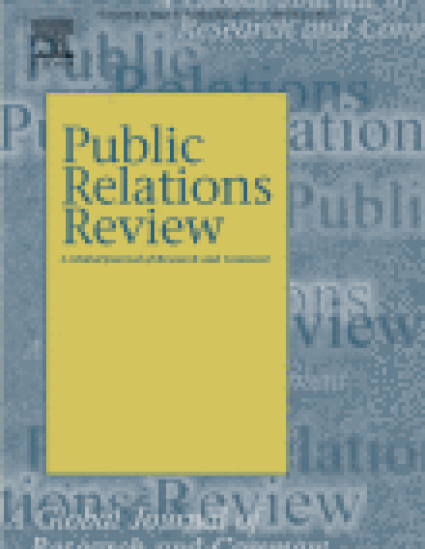
Article
CEOs’ political tweets and perceived authenticity: Can expectancy violation be a pleasant surprise?
Public Relations Review
(2019)
Abstract
Many corporate executives embrace social purposes and connect them to a higher-order rationale for something larger than just the success of their company (Ferguson, 2018, April. 30). And in the Age of Twitter, social media makes it relatively easy for high-profile CEOs to not only position themselves as tech-savvy and approachable, but also to take a stand on controversial issues such as climate change, same-sex marriage, immigration, discrimination and gun control (Men & Tsai, 2012, 2016; Brandfog, 2013; Chatterji & Toffel, 2018). CEOs are not only stewards of their companies but also social actors, and it is no longer controversial to suggest that their communication efforts in the political arena may sway public opinion just like those of prominent politicians (Chatterji & Toffel, 2018). Of course the primary objective of such social activism is to inspire public support around a contentious issue or to address a particular social problem (Salmon, 1989; Deegan, 2001; Derville, 2005; Vegh, 2013), but it seems worth considering whether these CEO political tweets are an effective form of activism, providing new information or raising awareness in a new way.
Disciplines
Publication Date
May 1, 2019
DOI
10.1016/j.pubrev.2019.05.006
Citation Information
Myungok Chris Yim. "CEOs’ political tweets and perceived authenticity: Can expectancy violation be a pleasant surprise?" Public Relations Review Vol. 45 Iss. 3 (2019) p. 101785 Available at: http://works.bepress.com/myungok-yim/2/
